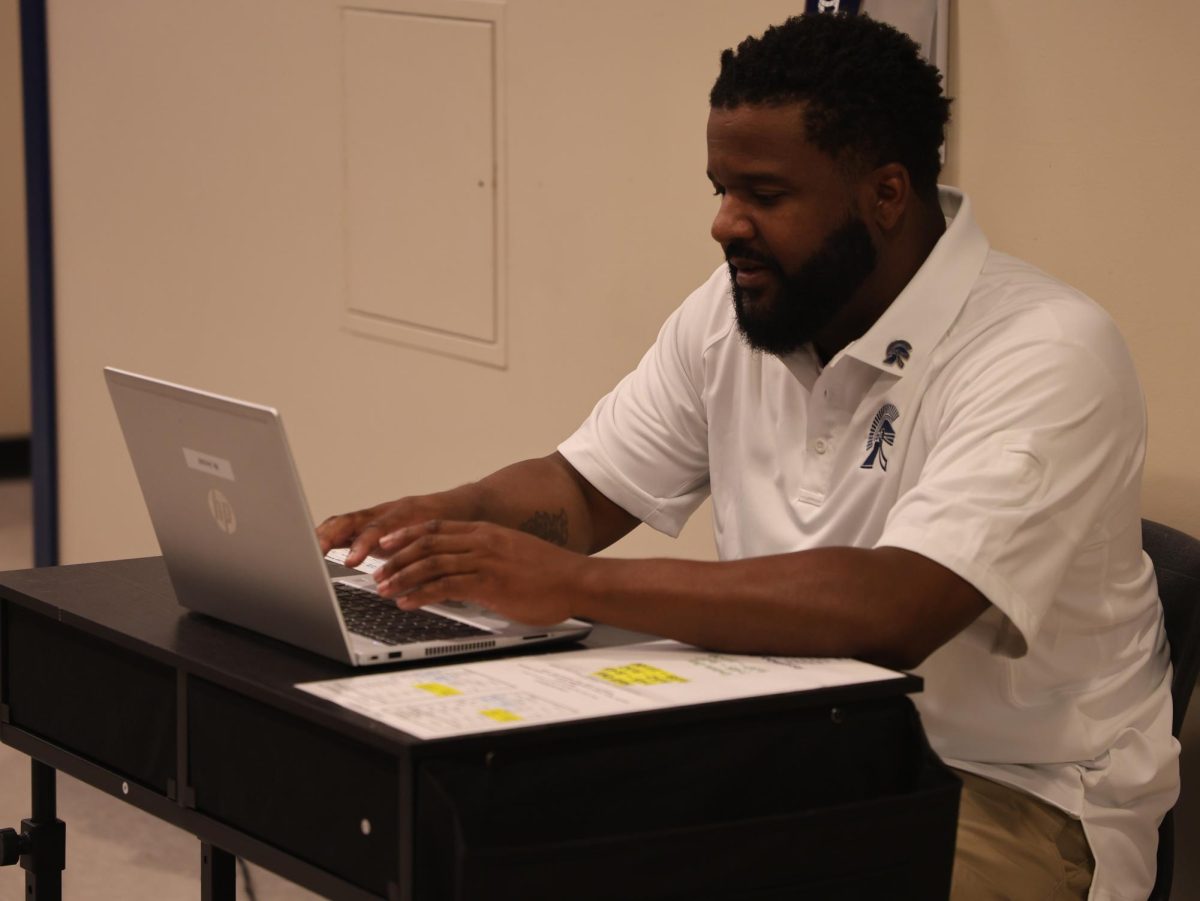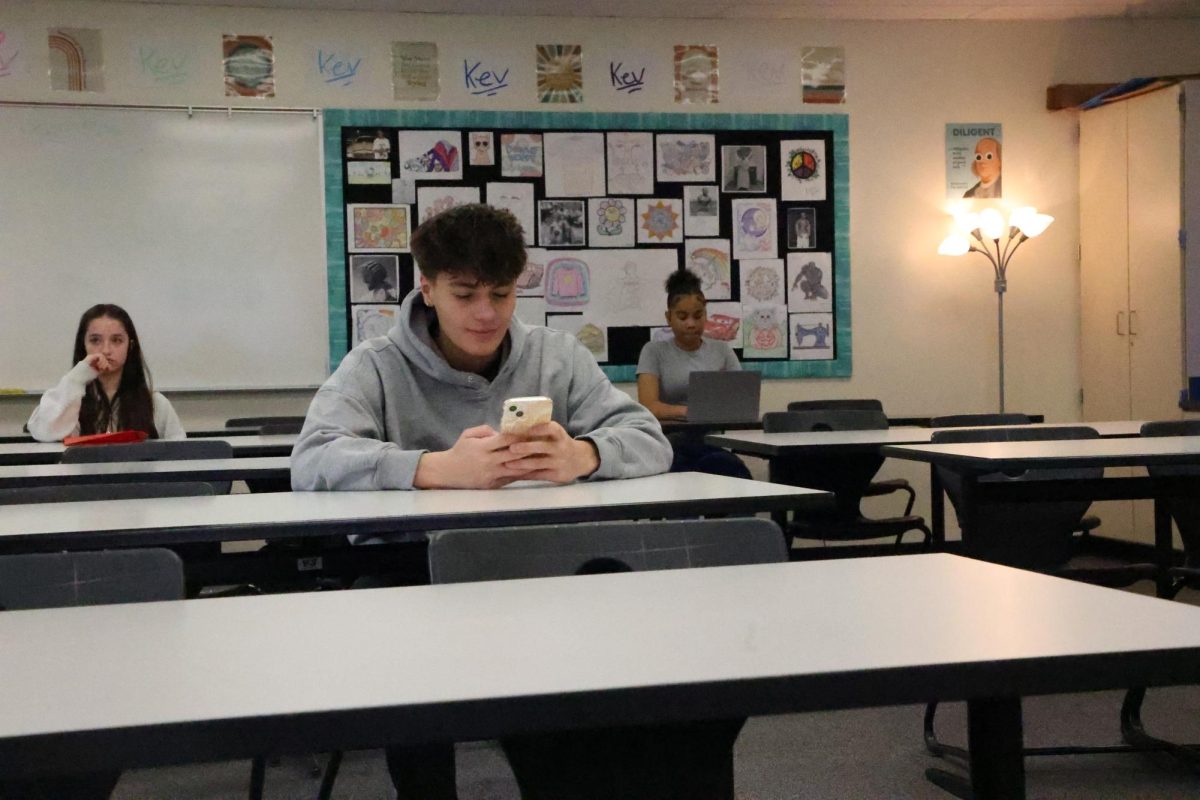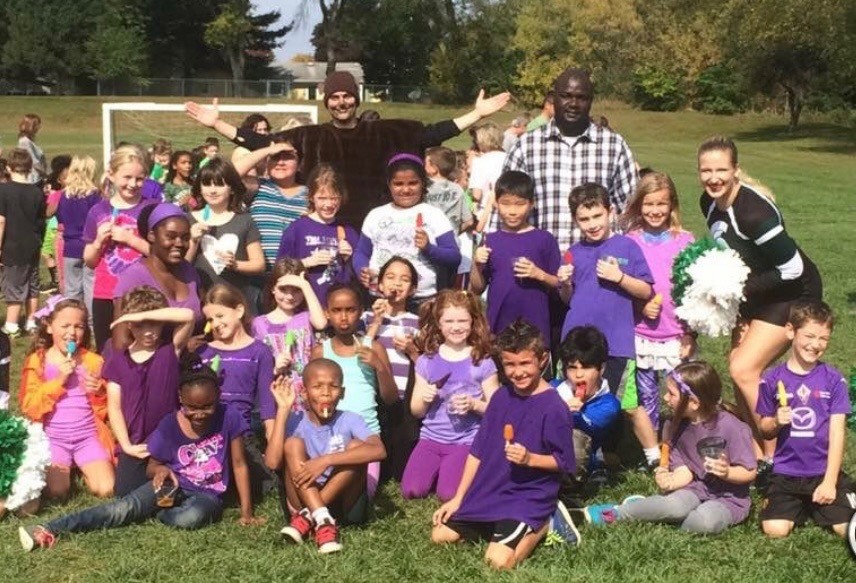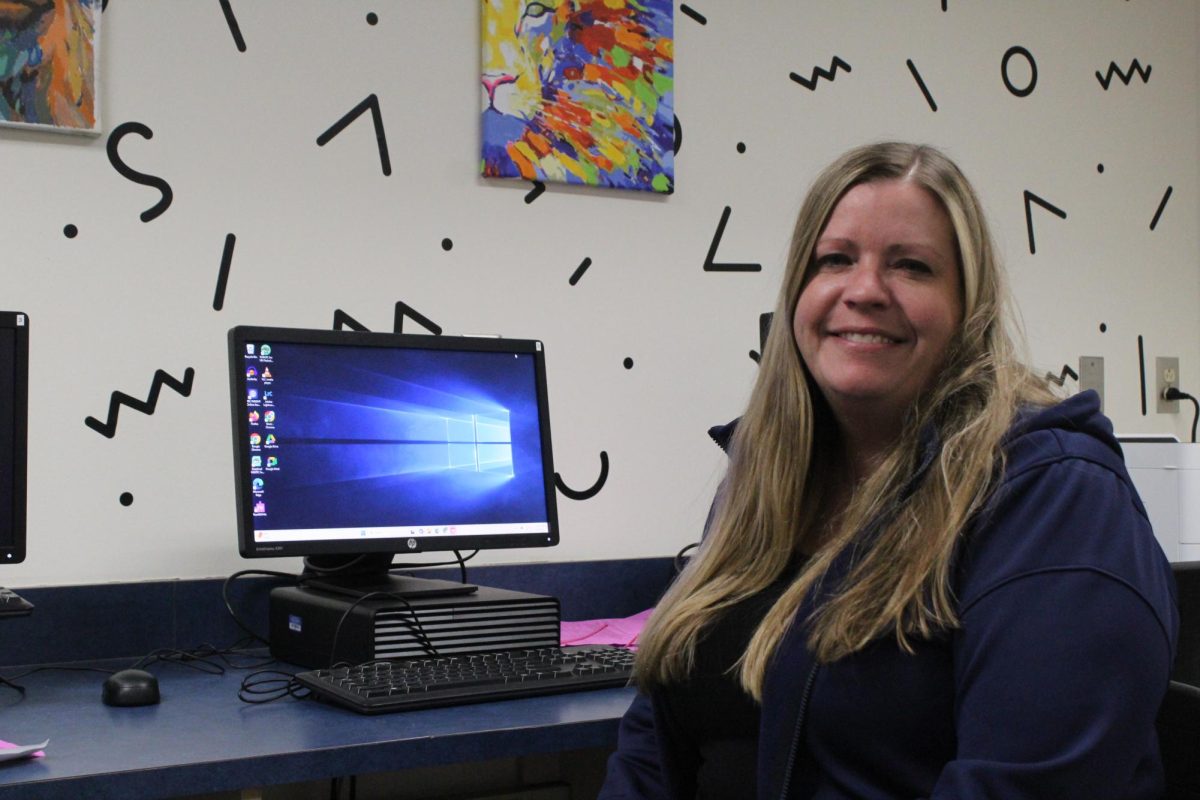When the bell rings signaling the end of a class period, the mad rush of students filling the hallways ensues. While people walk their daily paths to their classes, some stop outside bathrooms, huddle outside of classrooms or gather in the locker commons. These spaces are typically filled with friend groups, chatting and making jokes. However, amid all the commotion, we have noticed certain harmful phrases increasingly being thrown around.
In our editorial staff of 11 individuals, 82 percent believe that the rise in harmful slang affects the well-being of the student body.
In a world governed by social media, many different terms and phrases have been created and adopted to signify everyday occurrences. Different videos trend and go viral, creating memes that become part of the next day’s conversation. Terms range anywhere from having “aura” (if you do something cool) to “yapping” (if people are talking too much). These viral moments can be quoted in response to situations and be universally understood, connecting many groups of young people.
While many phrases become funny jokes among friends, others are used without people fully comprehending their meaning.
From jokes about body shaming, race, sexuality, and even suicide, these phrases that are ingrained into daily conversation can have a devastating effect on people everywhere. Jokes referring to a friend as a “big back” when they eat one more piece of pizza, or saying “I’m going to kill myself” when something doesn’t quite go as hoped may seem harmless, but can actually hurt the people saying the joke and those around them. Many people have struggles that they may not share, and making jokes about them minimizes the difficulties they face.
The more each of these jokes is made, the more normalized they become in society. Once certain phrases become normalized, the issues behind them seem less prevalent. In society, there are many sayings used frequently that have deeper and more sensitive underlying meanings, but as they were used consistently, their origins have been forgotten. Sayings such as “bang for your buck” which refers to the act of prostitution and, “kicking the bucket” which refers to the act of hanging someone, are both phrases used often. The fact that most people don’t know the meanings behind each phrase and still use them applies to slang used in everyday life. The more it is used, the harder it is to remember their deeper meaning.
Associate Principal, Jeffery Lampi stated that he hasn’t seen an uptick in reports made to administration concerning harmful language this year. While the administration has not noticed the same uptick that we have, it doesn’t minimize the need for change. Lampi also acknowledges that any harmful language is a problem that needs to be addressed.
Some communities have reclaimed slang that has traditionally been used against them such as the B-word for women. With many different societal issues such as racism, sexism, homophobia, and ableism, some members of different communities may decide they will use derogatory words to diminish the pain they have caused them. There is a difference between making jokes within your community or friend group in a setting that is agreed on. But where is the line drawn?
As students in a diverse culture, such as the one at ELHS, we have a responsibility to be mindful of every phrase said. It is crucial to make the choice to be educated on the meanings behind each term and the impact they may have on other people.
When a harmful joke is said by a peer or a friend, it’s important to call them out. There are many ways to call people out, and choosing the correct way is critical to creating change. When calling someone out, it’s important to assume the best intentions to start, as people may not understand why what they say is harmful. It is something that should be done privately so as not to embarrass them or escalate the situation. The more mindful we are in choosing which words to use and working to inform others of the impact of their words the closer we are to creating change.















